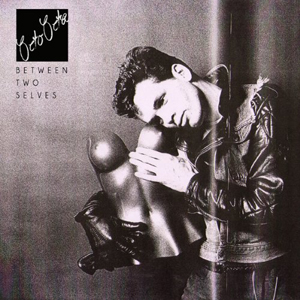Octo Octa Between Two Selves
For all the influence he has taken from exuberant ’90s house and rave music, there […]

For all the influence he has taken from exuberant ’90s house and rave music, there is something unassuming about Octo Octa, the main project of Brooklyn’s Michael Morrison. The producer is surely one of 100% Silk’s marquee names, and has released four records over the last couple of years, two of them full-lengths. His sound is crisply honed, and he usually does well to use vocals or vocal samples to give his tracks pop appeal. Pinning him down beyond these signifiers remains a problem, however, and Between Two Selves, his latest album, does little to clear that up.
Carefully modulating moods over the course of the 50-minute LP is a tall task, and as such, Morrison sounds more sentimental than ever before. The production is tighter, as well, with several tracks sounding like exercises in showing off new studio tricks. The opening suite—from “Who I Will Become” through “Please Don’t Leave”—offers some of Octo Octa’s finest work yet, as he hones in on the smudged, forlorn sonics that marked his record with LA Vampires and spreads them out across more ethereal scenarios. The loose-but-downcast “Bad Blood” offers a fresh take on R&B-sampling house, and is reminiscent of Terekke, especially in the way most of the high frequencies seem to have been filtered out. Another parallel for these tracks might be found in Morrison’s erstwhile labelmate Fort Romeau, an artist whose 2012 Kingdoms LP split the difference between expertly primed technique and homespun accoutrement. “Please Don’t Leave” exemplifies this mixture—its padded kick drum is one of the best in recent memory, and the track’s cavernous melancholy is balanced out by bright flourishes. “Come Closer” is also similar to Fort Romeau, as its repeating, male/female plea (“I want you/I need you“) recalls the refrain of the London producer’s “I Need U”—albeit without the same palpable yearning. Octo Octa’s vocalists sound dead-eyed and depleted on his track, and their cries for companionship are lethargically, robotically repeated, as though searching for any casual, empty rendezvous.
“Come Closer” ushers in a section of more dancefloor-oriented material that bogs the album down, as it sometimes finds Morrison overexerting himself. “His Kiss” is propulsive and tightly woven, but its complex use of pumping compression, breaks, and R&B vocals wears thin. The rave-indebted “Work Me” suffers a similar fate. Drastic sidechain compression (the sort Andy Stott might use) is still useful in conveying a seasick, disorienting feeling, but in terms of these would-be dance tracks, it tends to override the rhythm. As a result, the second section of Between Two Selves finds the producer’s precision betraying him, as it’s all perhaps a bit too overwrought to really work on a dancefloor. But if the usual point of a dance-music album is to try out ideas that might not fit the typical 12″, this could be the best place for Octo Octa’s experiments anyway. His LP might have some fat to be trimmed, but its strong first half shows that Morrison has significantly improved the textural and sensual aspects of his sound.

